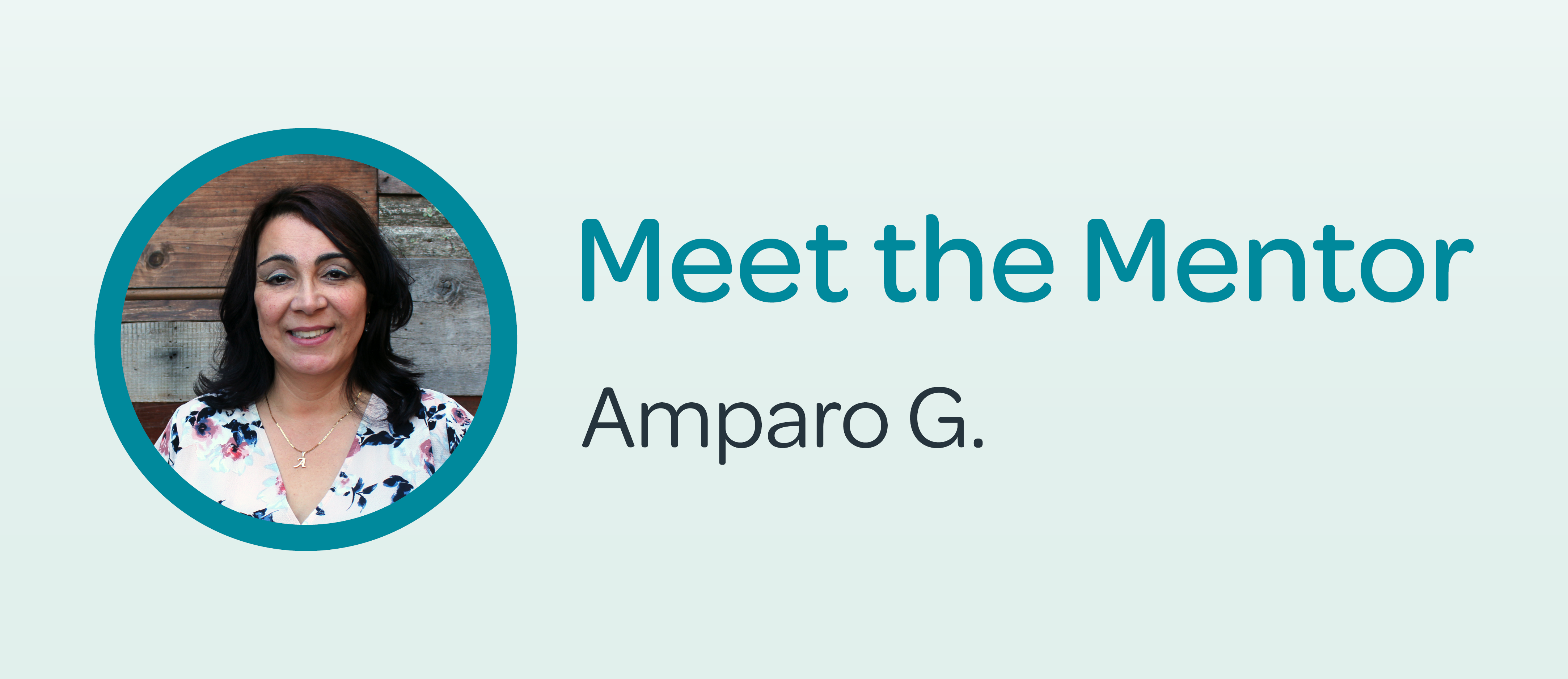Meet the Mentor: Amparo G.
Oct 17, 2019
"You can never underestimate anyone. Everybody has the capacity to overcome anything and change for the better."

This is the third post in our October blog series, Meet the Mentor. Each week, you’ll meet a different mentor from one of EMPath’s programs.
Amparo has worked at EMPath for nearly 15 years. She is currently a mentor at the Whitter Street Apartments, a public housing development in Boston’s Roxbury neighborhood that is being completely rebuilt over the course of five years. EMPath was selected to provide Mobility Mentoring® services to Whittier residents, who had to move out during the construction.
How would you describe a Mobility Mentor?
Someone who can sit with a person and listen to them. Anything they want to talk about, or that they want to make progress on, we sit and discuss that. We refer them to different resources in the community for whatever it is they want to pursue, or to [EMPath’s] career, employment, or financial specialists.
Eventually the participant feels more comfortable and they open up to you [their mentor] and you create goals with them. When they accomplish a step or the entire goal, you tell them they’re moving in the right direction. If there are any setbacks, you have to encourage them – “Don’t give up, continue trying. If you really want to get there, you will. You have my support; you have the entire team at Whitter to support you.”
How is a Mobility Mentor different than a traditional case manager?
People come to a traditional case manager with multiple crises. The case manager calls here and there on their behalf. With a case manager you can only work on a couple things at a time, not everything at once.
As a Mobility Mentor, I start by asking a participant what the priority for them is, what they would like to work on first. I don’t necessarily do things for them; I teach them to advocate for themselves. Little by little I empower them. I work with everyone based on their individual needs. I allow them to think of their own goals, what they want to do.
What makes a good Mobility Mentor?
A good Mobility Mentor will listen to the participants. Really listen. And will always be respectful.
Listening to participants is very important. You give them confidence and tell them they can do it – “With the right support, with the right guidance, you can do whatever you want to do. Little by little you’ll do it and you’ll say, ‘Wow, I didn’t know I could do it!’”
You have to be non-judgmental. You have to be kind, have kindness in your heart. If a participant is upset, you don’t take it personally because they may be going through who knows what. You have to be understanding. You know that you only bring good services and a good attitude, and you listen with respect. It’s not about us [the mentor]. You have to understand the person from wherever she’s coming from. People come from all backgrounds. Some people have trauma from when they were growing up. You cannot judge. Whatever the participant tells me, that’s what I believe and that’s what matters.
The participants see that you are authentic, that you’re here to help them, that you listen to them, that you respect them, that you’re flexible. They come back because they feel that we care. And it’s true – I genuinely care for all the people I work with here.
Tell us about a time a participant achieved a difficult goal.
I have a participant who went back to college to get her bachelor’s. She works full-time too, and she has a lot of debt. She always wanted to go back to school but she never got around to it because she has a 13-year-old daughter. But last year she signed up and now she’s attending, and she’s going to graduate this coming May 2020.
It was difficult for her to get there. But she was able to. Her daughter entered a new school last year, so she was able to manage her time in a way that could include classes.
What is one thing you wish people knew about EMPath?
I wish people knew that EMPath has changed and continues to change people’s lives for the better. The majority of people who have participated in an EMPath program have moved up, have progressed, have found economic independence. They are successful. We have so many programs that help different people with different needs reach what they want in life and lead a life they never had before.
What’s your favorite part of your job?
My favorite part of my job is helping people see that there is support. Whatever it is they need, there is support. If not here at EMPath, then in the community.
You can never underestimate anyone. Everybody has the capacity to overcome anything and change for the better.
Sometimes participants will say, “Because of you I did this.” I say, “You did it, not me. I just showed you that you could do it, but you’re the one who did it.”
What do you like to do outside of work?
I try to go three or four times a week to the gym. For self-care I get massages. I usually hang out with family and friends on weekends.